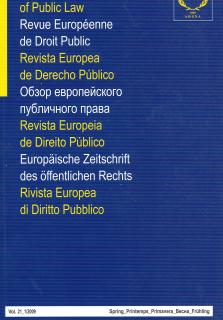
General Introduction:
Towards an Administration without Frontiers?
- The Perspective of Third-Country Nationals -
Thomas Gross
University of Giessen, Germany
In the last years the co-operation between the Member States in the field of migration and asylum law has been deepened and European legislation has improved the status of Union citizens, but this is not true for most of the third-country nationals. The external borders of the Union have gained importance and the internal borders have not lost it. The primary focus of European law is on the defense against illegal immigration while human rights obligations and refugee protection are not always sufficiently taken into account. The Dublin system for handling asylum applications has caused problems in the southern Member States. The status of third-country nationals is only partly governed by European migration law as a consequence of the political development, because a consensus could only be reached on certain groups of migrants. Family members of Union citizens making use of free movement are privileged in relation to other immigrants. Economic migration is only permitted for high-skilled workers.





















